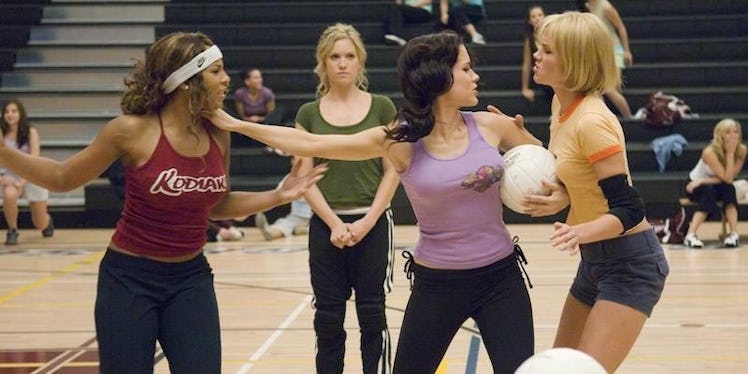
How You Diminish Feminism When You Say, 'I'm Not Like Other Girls'
We've all heard it before on Tinder profiles, bios and bumper stickers. Some of us have maybe even said it ourselves. “I'm not like other girls.” At first brush, the phrase sounds harmless, and maybe even endearing. We all know what it means.
“I don't like drama.”
“I have a good sense of humor.”
“I like sports and video games and wear sweatpants, but still look good.”
I used to say this very thing about myself, back in high school before I'd sorted out my personality or values. I made fart jokes, hung out with guys and loved The Who. I was a "chill girl," and I wanted guys to know that.
But the phrase, and the way of thinking that is encouraged by its easy, comfortable use, is more dangerous than it might seem. Despite the rise of feminism in popular culture, a lot of our actions haven't really followed what our idols are preaching. Beyoncé's “Flawless,” which came out in 2013 and has graced T-shirts and Instagram captions ever since, samples Nigerian author Chimamanda Ngozi Adichie's Ted Talk on feminism.
“We raise girls to see each other as competitors,” she says in the selection. “Not for jobs or for accomplishments, which I think can be a good thing, but for the attention of men.” This simple acknowledgement sums up why a little phrase like “I'm not like other girls” can be such a damaging tool.
When women treat other women as competitors for men's attention, it reinforces a number of harmful societal trends. When we accept that male interests and priorities are more important than judging a woman for who she is, we undermine our own interests.
Characteristics that are traditionally seen as feminine are devalued and seen as subordinate because of it. If we mock other women who “fangirl” over One Direction over a more stereotypically male obsession like football, we strengthen that hierarchy. Neither camp is inherently better.
There's nothing that says a stereotypically male sense of humor, for example, is the standard or desirable one over the female. (Check out Olga Khazan's article on humor and gender published in The Atlantic last November.)
Similarly, whether you're insulting one other woman or all other women to improve your image, the practice reinforces the idea that a woman's value extends only as far as men find her appealing. When we characterize ourselves not as individuals, but only in relation to how much some other person might want to take you home because of your trait matrix, we learn to only value the traits that make us attractive to someone else.
Intelligence, self-love and the ability to articulate yourself and argue well aren't often making men's magazine hottest traits lists. With time and repetition, this starts to discourage traits that aren't part of the woman's dateability trope.
While healthy competition is a positive in many contexts, comparison that tears some down only to make others stand taller is never good. This type of competition isn't about bettering oneself or personal growth, and it only comes at the expense of others.
As with sibling competition for parental love, when women are involved in a subjective, judgmental competition for a limited number of dicks, nobody wins. Besides the fact that men are rarely part of these petty competitions, scrutinizing others usually lowers your own self-esteem.
When you embrace others and realize that someone else's beauty doesn't lessen your own, or another person's genius doesn't make you a subpar poet, you're more forgiving of yourself. You feel nicer and more accepting of different traits. It truly is contagious.
If we don't start treating each other with the respect we deserve, we just make it OK for others to spread dangerous misconceptions about women.
The nasty belief that women are conniving temptresses who are independently responsible for how men sexually react to them has been around since Eve became humanity's scapegoat. We see it in rape cases when women are scolded for an outfit they wore that apparently rendered their attackers helpless, yet brutal animals.
We see it regularly when women are given either credit or blame for creating the sexual lure that men cannot resist. After dating a boyfriend a while back, I was attacked online by his ex-girlfriend. Though I was practically a stranger, she blamed me for his feelings while keeping him innocent.
In cheating situations, how often do we see women going after the woman with whom the partner cheated with rather than their actual partner? How little sense does it make to blame the third party, unless some part of you believes that women are wily temptresses who make men their innocent victims?
Women have enough societal hostility to deal with without fearing friendly fires. We should support each other. When you walk into a women's restroom at a club or bar on a Friday, what reactions do you get?
Sure, there will sometimes be criers, fighters and drunks, but in my experience, when we have our defenses down and confidence up, we are all so nice to each other. Bathrooms full of women are full of earnest questions, compliments and jokes.
Let's make our whole world our tipsy bathroom. If that's what most of us are like deep down, I'm proud to say that I am like other women.